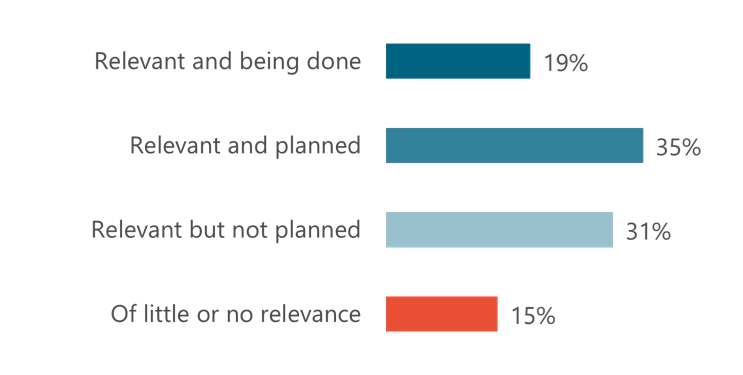Data Mesh Principles Gaining Traction According to New BARC Study
BARC, the leading enterprise software analyst, has published a new study exploring the viability of data mesh as a sustainable approach to data responsibility in the business. The study, entitled “Data Mesh: Game Changer or Just Hot Air?” delves into the role of decentralized data ownership, treating data as a product, self-service empowerment, federated data governance, and the understanding and appreciation of data mesh principles.
- BARC’s study examines data mesh as a sustainable approach to data responsibility in business.
- The study suggests a shift towards more decentralized data ownership in business domains for scalability, flexibility and agility.
- Data mesh principles are currently being adopted by many organizations and should be evaluated for applicability in data and analytics landscapes.

(Source: BARC Survey “Data Mesh: Game Changer or Just Hot Air?”, n=293)
Shift towards decentralized data ownership
According to the study, executives believe that centralized data teams will not meet future data and analytics requirements, and the shift towards more data ownership in business domains is already underway. The study recommends more decentralized data ownership in business domains to ensure scalability, flexibility and agility. Central data teams will take on a new, critical role as advisors, ensuring the availability and stability of the data and analytics platform.
The study emphasizes the importance of treating data as a product, especially when it is a revenue driver. Data products should be valuable, feasible and desirable, adhering to a set of usability characteristics determined by data product consumers. The study also highlights the need to empower business users to perform their data and analytics tasks through a self-serve data platform.
Federated data governance and data intelligence
The study finds that federated data governance is on the rise, and the purely centralized governance concept is reaching its limits. While the issue of data governance is being tackled in a range of different ways, central and federated approaches are currently much more popular and successful than local ones.
The study concludes that the data mesh concept addresses some highly relevant areas, and its principles are currently being adopted by many organizations, regardless of whether they call them ‘data mesh’ or not. Companies are encouraged to evaluate the applicability of data mesh principles to their current data and analytics landscape and organization.
Finally, the study highlights that data intelligence is the key to success, and 80 percent of study participants are planning a data intelligence initiative or are already implementing one. Data intelligence leverages metadata to ensure efficient and effective collaboration between data product owners and data consumers, and platforms that support data intelligence provide the source for the federated computational governance propagated in the data mesh concept.
The study is available as a free download thanks to sponsorship from Denodo and One Data.
